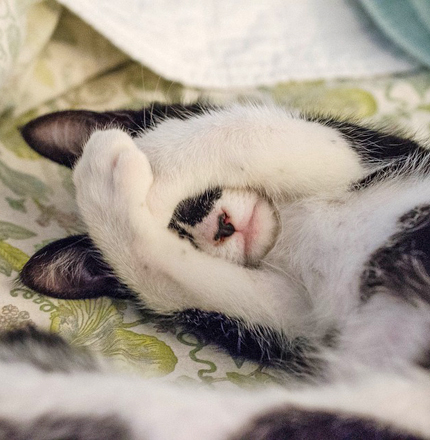Controlling Noise Phobias

If your pet suffers from noise phobias, this is almost always a difficult week. I have a sneaky suspicion that this week’s backyard fireworks celebrations could possibly be louder- and more numerous than in years past- for a few reasons. First- the holiday falls on a Saturday. Second, with many municipalities postponing or canceling their large fireworks displays due to COVID-19, more folks will be staying home and putting on their own displays. This means more anxious pets- and it can be maddening to figure out how to best keep your pet calm throughout the celebrations. The answer can be simple, or quite complicated, depending on your pet- and it may require some trial and error to find the best solution for your specific pet.
Some pets are truly afflicted by noise phobia- regardless of what the noise is. Loud noises from thunderstorms, fireworks, construction or other sources are the problem. Some pets are affected by only thunderstorms- although we don’t really understand why and more research is being done on this subject. Some research shows that some breeds tend to be more susceptible to noise-phobia. If your pet shows signs of suffering from separation anxiety, they are more likely to fear loud noises.
As we consider ways to keep our pets calm during these anxious times, I prefer to avoid prescription medications whenever possible. Don’t get me wrong, there are times when it may be the only solution. However if you deal with this issue with your pet, consider some of these non-prescription options and remember that effort needs to be made by everyone in your household. You will need to work with your pet to work on some behavior modification- and will take some time- and that there are no guarantees that they’ll work for your pet the first time. It may take days or weeks to curb their anxiety or fear.
When you see that bright flash of lightning and hear the boom of thunder, your first instinct may be to grab your pet and try to give them copious amounts of attention and reassure them that everything is all right. This is a natural instinct, but trying to console them may actually be seen by your pet as a reward for their fearful behavior. Conversely, do not punish your pet for their fear, as this will just make them even more afraid of the noises. Remain calm yourself, as your pet can sense your anxiety levels. If you’re calm, it can help have a calming effect on your pet.
Changing your pet’s environment can sometimes help. Putting them in a room without windows, along with a radio and a favorite toy, or perhaps a chew can keep them distracted during a noise event. Some pets may prefer a safe-haven, like a crate in a dark room, or with blankets or towels draped over it, providing a sense of security. Keep the door open to the crate, as being confined may add to the anxiety.
Consider a change in diet. Although the diet change does not have an immediate effect, we offer a diet from Royal Canin which has shown some amazing results in both dogs and cats. Heather, one of our pet nurses at Tampa Veterinary Hospital has been feeding her cat the Calm diet from Royal Canin for several months. Prior to changing her diet, her cat would hide behind her washing machine even when she sensed a storm approaching. Now, her cat barely even notices the storms and is a totally different cat. Again, this is a long-term, potential solution- not something that will change your pet’s anxiety levels overnight.
There are also other calming products that do not require a prescription. For cat households, the Feliway plug-in uses pheromones which has been proven to have a calming effect on felines. A similar product is available for dogs- and can be worn on the collar. This product is called DAP. We carry both of these products at TVH, and are available without a prescription. Ask us if these products may be a good option for your household.
We are also pleased to announce that we are now offering a product called Sileo from Zoetis. Sileo is the first FDA approved product to specifically manage noise-phobia. This product can be safely administered at home, without causing sedation. Other medications which can be offered to manage your pet’s anxiety may have both short and long-term side effects beyond sedation. We have numerous patients who take this medication for noise phobias, and overall, the feedback is quite positive. It has a quick onset, typically within 30 minutes to one hour. This medication is available for dogs only, and requires a prescription. Like any other prescription, we must have seen your pet within the last year before filling the prescription. If you would like to see if this medication may be a good idea for your dog, give us a call and schedule an appointment at 813-254-3031.
 One last alternative that has had mixed results is the Thundershirt. Some folks I’ve talked to love them, and say it helps their pets during thunderstorms, and others have said they had no apparent positive results. It may be worth a try, or it may be a waste of money- depending on your pet.
One last alternative that has had mixed results is the Thundershirt. Some folks I’ve talked to love them, and say it helps their pets during thunderstorms, and others have said they had no apparent positive results. It may be worth a try, or it may be a waste of money- depending on your pet.
Remember, each pet is different. Your results will vary from product to product and may be based on how long your pet has had the phobia- and the severity. You will need to put in a little effort, but your best friend will appreciate it- and they’re well worth it.


 Tap to Call Now
Tap to Call Now